Aboriginal and Torres Strait Islander users are advised that this website may contain images, voices and names of deceased persons.
Welcome to the Helping Mob Live Healthy and Prevent Cancer Toolkit.
Designed for people working in Aboriginal health, this toolkit seeks to support you in your work to improve our community’s awareness, access and participation in cancer screening and living healthy for cancer prevention. Ultimately, the toolkit aims to reduce cancer rates and increase positive health outcomes for our mob.
On average, 1 in 2 people in NSW will be diagnosed with some type of cancer by the age of 85. Our mob are at higher risk of being diagnosed with cancer and are 40% more likely to die from it.
With these resources, together we can become more informed as a sector and better equipped to keep our mob healthy.
We acknowledge the traditional custodians of the lands on which we work and live, and pay our respect to Elders past and present. We also pay our respect to all Aboriginal people and families whose lives have been affected by cancer.
Aboriginal people should be aware that this toolkit may contain images, voices and names of deceased persons.
We acknowledge the traditional custodians of the lands on which we work and live, and pay our respect to Elders past and present. We also pay our respect to all Aboriginal people and families whose lives have been affected by cancer.
Learn more about this toolkit
The toolkit is designed for the Aboriginal health workforce.
The Aboriginal health workforce includes Aboriginal Health Workers, Aboriginal Health Practitioners, health professionals with Aboriginal clients and anyone working to improve the health of our mob in NSW.
The toolkit provides easy access to the latest cancer resources and information specifically tailored for supporting Aboriginal people.
Use it to have yarns with your clients about:
- cancer prevention
- cancer screening and early detection
- emotional support and wellbeing.
The toolkit has a particular focus on the 3 current national cancer screening programs available for bowel cancer, breast cancer and cervical cancer.
For more information on toolkit inclusions, see About this toolkit.
Working in the Aboriginal health workforce, you play an important role in helping NSW communities prevent cancer and improve their everyday wellbeing.
Some suggestions for ways to promote healthy living in your role include:
- sharing empowering information to support people to live healthily
- encouraging people to participate in cancer screening to find cancers early
- helping people to understand the signs and symptoms of cancer
- increasing awareness of the annual Aboriginal Health Check (715)
- helping people to understand the link between living healthy and reducing the risk of cancer
- supporting people affected by cancer with treatment, care and survivorship.
Get started with the toolkit
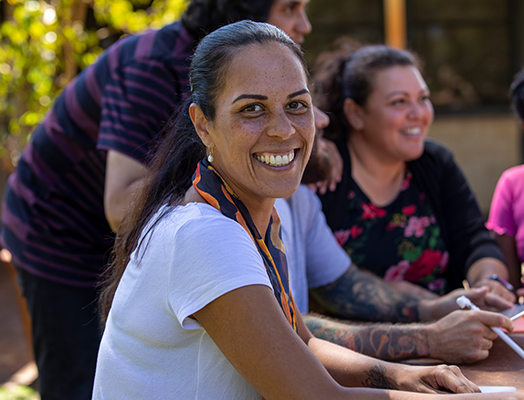
Learn how to navigate the toolkit and access the resources that are relevant to your needs. You can also find answers to your FAQs.
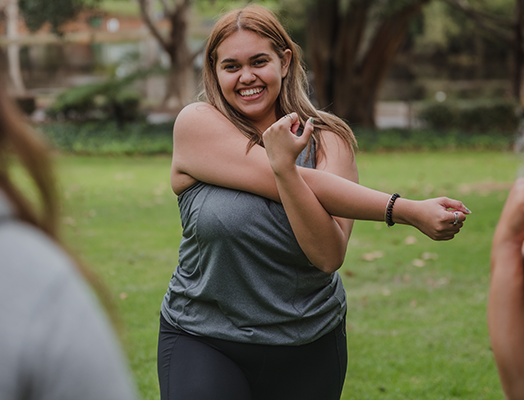
Build your knowledge and confidence to yarn about cancer screening and prevention and help make a positive impact in your community.
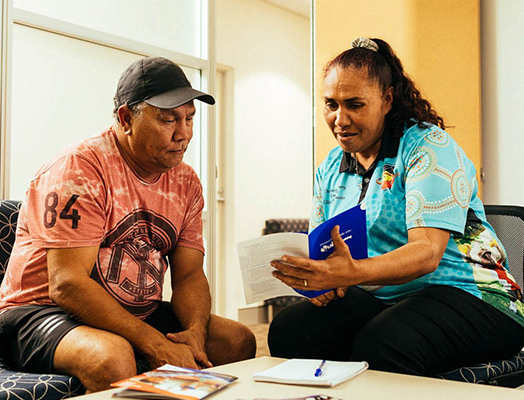
Learn about what social and emotional wellbeing means for Aboriginal people. Access links to resources to help support your clients.
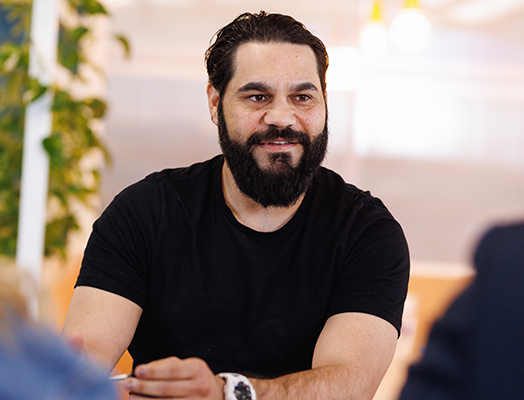
Access a suite of resources to support your work promoting cancer screening and early detection with your mob.
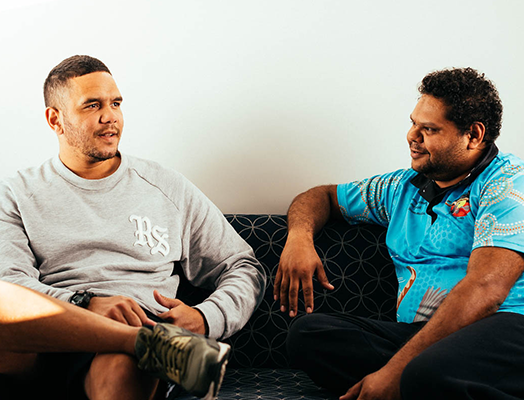
Discover the aims and development process of this toolkit, co-created with Aboriginal stakeholders for a culturally-tailored resource.
Please note:
Aboriginal, when used in this toolkit is inclusive of Aboriginal and/or Torres Strait Islander and/or Indigenous peoples.
Looking for information to support Aboriginal clients with cancer?
Our patient portal provides information for people with cancer and those supporting them.
